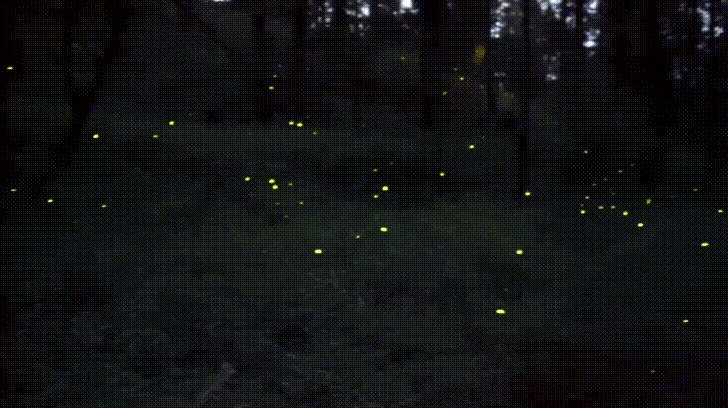One of the great joys of living in the country is the arrival of the fireflies in late June. For about a month or so, they dazzle us with their brilliant lights as they search desperately for a mate, before tumbling back to earth to die in the tall grass.
It did not surprise me when I read this past week that there are more fireflies than usual this year. All the rain we had this spring increased the earthworm and slug population, which in turn gave the fireflies a bountiful food supply.
We are cautioned that despite this revival, the firefly population is declining. Human activity is, of course, to blame for this. I do not need any proof to believe this; it seems self-evident.

According to Hume Douglas, a beetle expert employed by the Canadian government, We do not know the extent of the firefly’s decline because no one is studying it in a “systematic way.” The Globe and Mail says,
Governments and private companies are less likely to fund research into fireflies because the insects aren’t seen as an important pest by farmers and it’s unclear what critical role they play in the ecosystem.
Let us dwell on that last bit for a moment. Is it not science’s role to uncover what is “unclear”? I may be mistaken, but as a child, I assumed the scientist cast their gaze out at the world and sought to uncover all the mysteries of the universe. Apparently, the threshold is discovering what is already “clear.” All genuine mysteries, like the firefly’s role in the ecosystem, are no longer interesting. This certainly explains why most scientists shun UFOs.
Of course, gravity wasn’t obvious to anyone until Issac Newton got bopped on the head by an apple. Suddenly, it became personal. Perhaps the solution is to mail our leading scientists crates full of fireflies until they remit.
The forest animal population has fallen by half since 1970, the Trump regime wants to make it easier to wipe out endangered species, and plastic is falling from the sky over the Rocky Mountains. Surely now is the time to study fireflies. But science has long moved past the interests of humans, or any living beings, for that matter. Like Vulcan 3 in Philip K. Dick’s eponymous novel, science exists only to feed itself. We have lost control.


